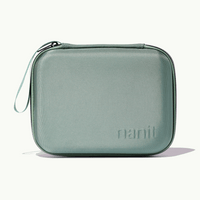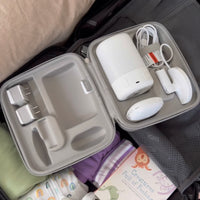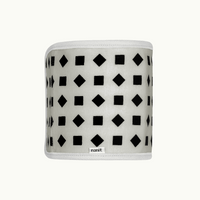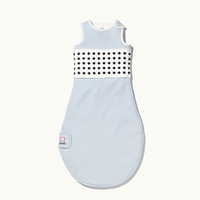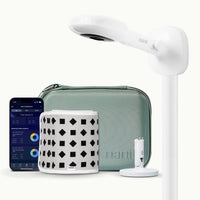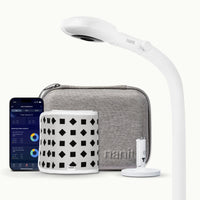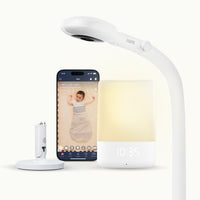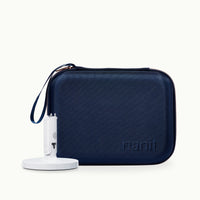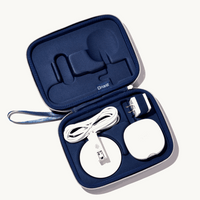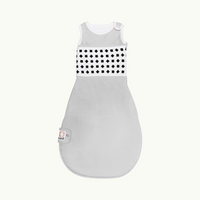As a new parent, there’s a lot to consider: from choosing the best pediatrician to selecting the ideal sleeping arrangement for your family.
But for parents-to-be who are weighing whether or not to breastfeed—or for caregivers who have already started—one of your biggest wonders may be, “How long do babies breastfeed?”
In short: it depends entirely on you, your child, and your circumstances.
Benefits of breastfeeding for both baby and mother
First, it’s important to keep in mind that there’s no one single—or right—way to nourish your child. This notion has been widely supported by #fedisbest, a movement that supports all forms of infant feeding, whether it’s the breast, the bottle, or a combination. When it comes to mom’s wellbeing, research has indicated that it’s the confidence in feeding method, rather than the method chosen, that is correlated to better sleep for mom. Whatever works best for you and your baby is the perfect decision, and you can change things up at any time.
If you are considering breastfeeding, it can be helpful to be aware of its benefits such as:
- Enhanced immune health. Your baby’s immune system is far stronger than you might imagine, but it still needs to be strengthened to ward off bacteria and viruses. (This is especially true in the first two months of a baby’s life). Breastfeeding can be very helpful in this regard, as breast milk is rich in white blood cells, bioactive compounds, and antibodies—proteins that organically promote immunity and help shield your baby from infections.
- Increased calm. In addition to providing your baby with the optimal blend of nutrients they need for cognitive and physical development, breast milk is brimming with ingredients that naturally soothe your child. And you get to feel the serene effects as well: Breastfeeding also prompts the production of oxytocin, a hormone that’s key to your relaxation and feelings of warmth and affection.
Benefits of formula and pumped breastmilk
Data suggests that not only is formula usage on the rise, but also 66% of parents claim they plan to feed their baby formula (or already have). Pumping and storing breastmilk is also a popular feeding option and might provide some of the benefits of giving breastmilk combined with the flexibility of using formula. And the percentage of caregivers who rely on combination feeding has also leaped by 22% since 2019.
There are dozens of reasons for turning to formula or offering a mix of breastmilk and formula—and each one is as distinct as you and your child. Here are the benefits of the different options:
- Flexibility and convenience. Whether you have an upcoming business trip or want to share feeding responsibilities with your partner, especially at night, your child can be given infant formula or breastmilk in a bottle by anyone at any time.
- Supplemental feedings. Infant formula can be a helpful way to supplement feedings for your baby if you have low milk supply or are struggling with painful breastfeeding.
How long should a baby breastfeed?: Recommended duration
Is there a recommended time frame to breastfeed your baby? Ultimately, it’s the family’s choice.
Here are some expert guidelines:
- The American Academy of Pediatrics (AAP) recommends exclusively breastfeeding for the first six months of your baby’s life when possible. At this point, complementary solid foods can be added to your baby’s breastfeeding regime, and breastfeeding may continue for two years or longer. The World Health Organization (WHO) supports these claims.
- The Dietary Guidelines for Americans suggests that babies should be breastfed, along with complementary foods, for one year or more.
The general consensus is that you can breastfeed for as little or as long as it is mutually beneficial to you and your child. Some toddlers may want to breastfeed only when seeking comfort; other babies might not want to nurse after nine months old. Meanwhile, some mothers may find breastfeeding challenging, while others might have medical challenges that render breastfeeding unsafe. In other words, only you, your child, their growth, and time will answer the question, How long can you breastfeed?
Tips for successful breastfeeding
For best breastfeeding results, consider:
- Letting your baby’s hunger guide nursing times and durations.
- Planning to feed your newborn for 20 to 40 minutes every two to three hours and more during growth spurts.
- Alternating between breasts to prevent engorgement and to ensure your little one obtains an adequate amount of calorie-dense milk supply.
- Keeping a baby care log, like Nanit’s Care Logs, to track breastfeeding and diaper changes (including the color of breastfed baby poop), which will help you pinpoint if your child is eating enough.
Last but certainly not least, prioritize your well-being. A diverse diet, adequate hydration, and proper nipple care help keep you and your child healthy.
Elevate your routine with Nanit
A good night’s sleep is crucial to your well-being as well; it also fosters healthy milk production. But between nighttime feedings and the seemingly endless to-dos of parenthood, sleep may elude you—and then some.
Enter Nanit. We offer a range of solutions to facilitate rest for you and your whole family, from our Sound + Light Machine complete with sleep-optimized soundtracks to Nanit Pro Camera, which allows you to monitor your baby no matter where you are.
Consider Nanit as part of your caretaking team.
Sources: Yahoo! Life. A history of breastfeeding and formula shaming: how did we get here? https://www.yahoo.com/lifestyle/history-breastfeeding-formula-shaming-161727806.html?guccounter Cleveland Clinic. Is your newborn baby’s immune system strong enough? https://health.clevelandclinic.org/is-your-newborn-babys-immune-system-strong-enough Cleveland Clinic. Benefits of breastfeeding. https://my.clevelandclinic.org/health/articles/15274-benefits-of-breastfeeding Cureus. The psychological benefits of breastfeeding: fostering maternal well-being and child development. https://www.ncbi.nlm.nih.gov/pmc/articles/PMC10631302/ What to Expect. Breastfeeding is much harder than moms expect: survey. Boeson Research. The benefits of formula feeding. https://boesonresearch.com/the-benefits-of-formula-feeding/ Utah State University. Breastfeeding or formula feeding: a mother’s choice. https://extension.usu.edu/nutrition/research/breastfeeding-or-formula-feeding-a-mothers-choice American Academy of Pediatrics. Newborn and infant breastfeeding. https://www.aap.org/en/patient-care/newborn-and-infant-nutrition/newborn-and-infant-breastfeeding/ CDC. Breastfeeding recommendations and guidance. https://www.cdc.gov/breastfeeding/php/guidelines-recommendations/index.html Parents. How long to breastfeed your baby at any age. https://www.parents.com/how-long-should-a-newborn-nurse-8599219 Nationwide Children’s. When should you stop breastfeeding? https://www.nationwidechildrens.org/family-resources-education/family-resources-library/when-should-you-stop-breastfeeding Very Well Family. Why some shouldn’t or can’t breastfeed. https://www.verywellfamily.com/why-some-women-cant-breastfeed-4153606 Nemours. Breastfeeding FAQs: supply and demand. https://kidshealth.org/en/parents/breastfeed-supply.html All About Women Obstetrics and Gynecology. How and why a simple breastfeeding log can help you. https://www.allaboutwomenmd.com/knowledge-center/breastfeeding-log-benefits.html Journal of Clinical Sleep Medicine. https://jcsm.aasm.org/doi/10.5664/jcsm.10612 Parent Data. Breast is best? Breast is better? Breast about the same? https://parentdata.org/breast-is-best-breast-is-better-breast-is-about-the-same/
Key takeaways:












